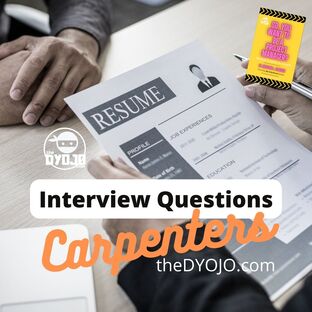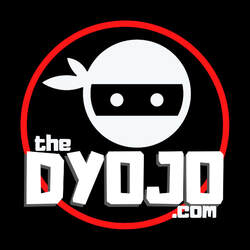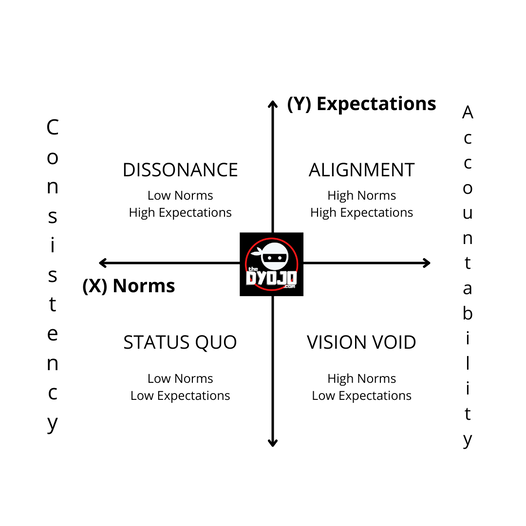|
Are you interviewing for an open project management position? What questions can you ask that will help you determine if this candidate has the potential to add to your unique culture, serve your clients with an excellent experience, and bring projects in on budget? We have been working through six key questions that we believe will help you get a well-rounded perspective on whether you have the right candidate for your organiztion. Project Manager Interview Question #1Our experience and our target audience is owners and managers in the property restoration industry. Many of these questions are readily adapted to project management in any of the disciplines in the skilled trades. You can learn more about developing your project management process, skills, and tools for development in Jon Isaacson's book - So, You Want To Be A Project Manager? The first question is designed to spark conversation, it is not meant to be a trick question or a trap for the candidate. We want to know what this person knows about the insurance claims process, as it is unique to the property restoration industry.
0 Comments
 When we interview carpenters, we ask them to rate themselves on the skills and tasks that we will have them perform. For example, we would ask a candidate to rate themselves in experience and comfort with some of the following:
We have found that structuring our interview in this manner keeps us consistent in the process and facilitates a conversation with the candidate to get an idea of what scenarios they have been in and which capabilities fall within their areas of greatest competency. Most professionals have strengths and weaknesses, so we want to discuss those so we know where this person can immediately step in to help our team and what skills we can help them to develop. Help Your Team Members Grow Their SkillsetsGrowth is a two-way street, we can help them grow by pairing them with team members who can expand their skillsets and our team will grow by having them bolster our workforce. With as much emphasis as business persons place on recruitment and hiring, it is important for intentional restorers to understand the value of employee development and retention of talent.
As a person in a position of leadership, your mindsets and habits have to be consistently refreshed if you want to develop a thriving workplace culture. It is important to remind yourself that those who are doing well are not smarter or more talented than you; they have more experience than you. Learning from the experiences, aka failures, of others helps you to shorten your dang learning curve for professional development.
As you pursue building a strong culture, don't make it any more difficult than it has to be. If you build a culture that is good to your people, your people will be good to your clients. Word will spread and you should have a great shot at remaining competitive as you work with your team to adapt to ongoing challenges and evolutions in the market. As you build your experiences in your efforts to develop your culture, perhaps this picture will help you develop the right mindset and habits for your journey. Four Quadrants of Alignment for Workplace CultureDeveloping an Intentional Workplace CultureIf you become discouraged with your progress, remember that the most important component is to be intentional with your process. Success grows experiences, and experience sprouts from failure. When you can learn from the experiences of others, you may be able to shorten your learning curve. The benefits of developing the right mindset and habits to build a thriving workplace culture will show fruit if you stick with it. We discuss the four quadrants from the graphic above as well as the process of moving your team towards alignment in greater detail in our article published in Claims Pages as well as our book Be Intentional: Culture. Those in a position of leadership are making the effort to bring their organizational norms, what the team actually does, into alignment with the expectations, or the stated vision and values. Recruiting and hiring in all industries is an issue and has been for some time. Construction is no different, and specialty industries such as property damage restoration (i.e. water and fire damage insurance claims) it can seem insurmountable. While I recognize these real challenges, I am not hearing many business people or “influencers” speak about the importance of talent retention If you struggle to bring in new recruits, does this not raise the value of your existing labor force?Recruitment for construction has been an issue for some time, it was not created by COVID 19. Obviously, there are elements of the shutdown and responses to this pandemic that have had ongoing effects on businesses. Yet, these difficulties are symptoms of a broader issue rather than a cause. In 2020, prior to widespread news about a new disease or threats of government shutdowns or subsidies for unemployment, the Associated General Contractors of America (AGC) released a report about hiring complications. “More than four out of five respondents to our survey said they were having a hard time filling salaried or hourly craft positions in 2019,” said Ken Simonson, the association’s chief economist. “Nearly two-thirds of the firms say that hiring will be hard or harder this year. In light of those staffing challenges, costs have been higher than anticipated for 44 percent of respondents and projects took longer than anticipated for 40 percent of them. As a result, 41 percent of respondents have put higher prices into their bids or contracts and 23 percent have put in longer completion times.” Most of the commentary that I see on a daily basis focuses on hiring and recruiting. There's not as much discussion on the retention side. I think intentional business leaders, especially those in construction, and specifically in property restoration, need to recognize that many of our hiring processes, pay scales, commission structures, and employee engagement mindsets are outdated. Thought leadership or recycled platitudes?A lot of the perspectives and habits that I come across are still rooted in the same ideologies and practices that I was when I received my start in this industry in the early 2000’s. If you're still running your company on an early 2000s model, it shouldn’t be shocking that you struggle to achieve positive results. As I shared in my final monthly column for Restoration & Remediation Magazine, “Most of what is shared on the socials is recycled or borrowed from others, even the edgy stuff. The recent packaging of ideas is often referred to as thought-leadership, even though most of the content is insufferably platitudinous with few remnants of either element for which is it marketed.” A good example of a leader who has been thinking differently from the status quo recently joined us for The DYOJO Podcast. Tammy Birklid of Merit Construction out of Tacoma, Washington was our guest for Episode 59 (aka Episode 3 of our series Benchmarks of Growth). Tammy shared that her employer, who became a mentor and the person from whom she purchased the company, used to say that his goal was to be, “An employer of choice.” Tammy elaborates on what that has meant for her as a business owner and how she has worked to make this vision a reality. Developing the right mindset and habits for employee retentionI drew some additional insights from Merit Construction for my project management book wherein I also shared a paradigm from Jack Welch, former CEO of General Electric (GE). Jack believed in candor, saying that the best thing you can do for an employee is to tell them where they stand and how they can improve. “Failing to differentiate among employees — and holding on to bottom-tier performers — is actually the cruelest form of management there is.” Quoting from his book Winning, Jack shares his belief in the rule of 20-70-10:
While you would not be alone if you do not agree with this “candid” approach, have you ever stopped to analyze how much time you spend working on issues with your lowest performers? Being clearer with your expectations is an exercise that is beneficial to owners, managers, and team members alike. How much time do you spend in self-inflicted misery wrestling with clients that you should have fired before the job started and lackluster people you should never have hired? I'm not a big fan of the idea of thought influencers. I am a big fan of the idea of thought and I think influence is important. What I am not a fan of though, is having people think for you, and try to influence you towards their perspective. Our motto at The DYOJO is to shorten your DANG learning curve. I think it's important that you don't replace your dang learning curve.
Many well-intentioned business persons are expending a great deal of energy trying to increase the quantity of employees they have (recruitment). If they would take a step back many of them would find that they are doing so to staff service lines that they would be better off discontinuing. I would encourage you to consider enriching the quality of your employee experience (retention). Retention is no guarantee of success. Clarifying what you do (vision), how you do it (values), and who you need to help you accomplish your goals (quality), rather than just the quantity of people you think you need to keep up with your competition, is a fruitful exercise. I have always been amazed at what a small team of people who are committed to each other can accomplish. The month of September will now be known as SOCKTember. We are in the pre-season of our 2nd Annual The DYOJO Podcast SOCKTember 2021 NEW Sock-Raising Challenge. We hosted a Zoom call for team captains and new team members to help set everyone off on the right foot. If you still have questions about the event, hopefully, this will provide some clarity on what you are signing up for. While each team wants to win, we also want to collaborate on creative ideas so that we can blow the prior event's haul of NEW socks out of the water. Last year, in the middle of the shutdowns, four local NEW Sock-Raising teams raised over 5,500 socks. These socks were distributed to local charities that each team elected as the recipient of their shared efforts. Sisters for Socks raised over 2,200 socks and took home the SOCKTember Trophy for 2020. This year the competition is heating up with teams from Washington, California, Georgia, New Hampshire, and Canada joining the challenge. There is still time to LEAD and/or JOIN a local NEW Sock-Raising team so that you can WIN SOCKTember. Have some FUN and do some GOOD, as we connect, collaborate, and conquer. MORE INFO on our webpage. Benchmarks of Growth - Part 3 of 6 The DYOJO Podcast, Episode 59 Guest: Tammy Birklid, Merit Construction (Tacoma, WA) SPONSOR The DYOJO Podcast is sponsored by Enlightened Restoration Solutions (ERS). Ben Justesen and his team have put together a dynamic live class which reviews real world estimates and elevates your ability to master the methodology of Xactware. Including how to determine your own labor rates, create your own price list, and navigate pricing feedback. Tammy shares insights into her process of growing in the company, with the company, and now as the leader of her company, Merit Construction in Tacoma, Washington. I found it interesting that her background was in finances and yet she placed a high emphasis on culture. Not that these concepts are exclusive, but in my experience the financial minded person has not always been the driver of those efforts. Tammy shares so many gems for our series, Benchmarks of Growth, this is part 3 of 6 from The DYOJO Podcast.
SPONSOR The DYOJO Podcast is sponsored by Advocate Claim Service (ACS), "Where you can find solutions to claims that are causing you anxiety." David Princeton and his team are ready to help you navigate doubtful and disputed insurance claims. The DYOJO Podcast is THE podcast for intentional restorers, helping you shorten your dang learning curve for personal and professional development. Catch us every Thursday on YouTube.com/thedyojo |
Words
The DYOJO - helping contractors shorten Archives
April 2024
Categories
All
EstimatingMarketingInsurance ClaimsLeadership |
|
| |||||||


 RSS Feed
RSS Feed
